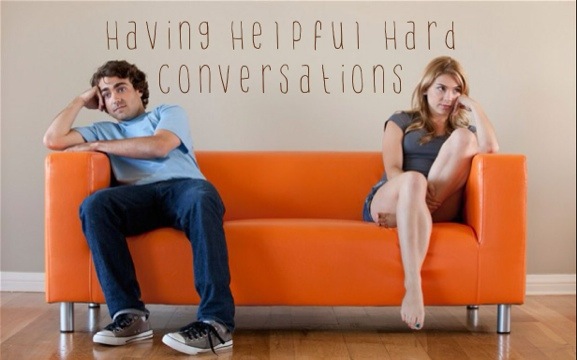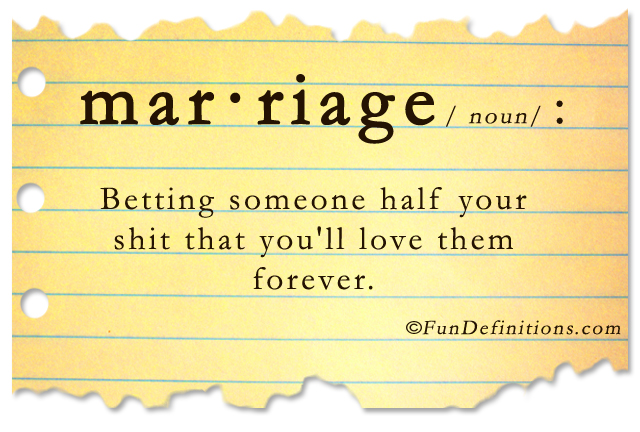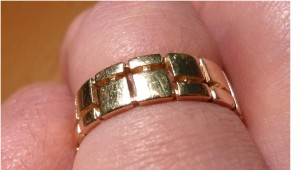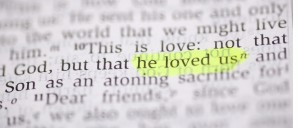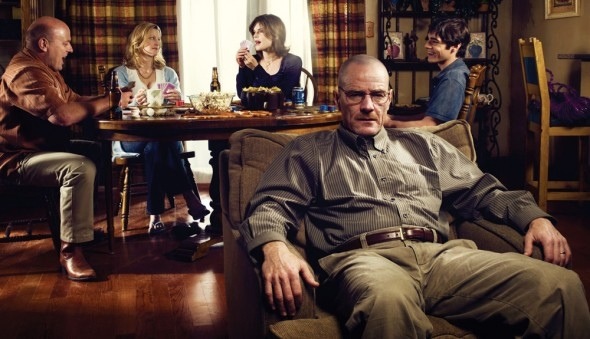The Banks of the Yarra and the Kindness of God

When people ask what I do for a living, I usually answer, “I’m a Graphic Designer… for a Funeral Company.” It gets a good reaction. I go on to explain that if you go to a funeral and receive a thank you card or an order of service, or watch a photographic tribute on the screen during the service… that’s the sort of stuff I do. The snazzy title for my job is a “Tributes Consultant” and I work for Tobin Brothers Funerals.
I love the job. It not only uses my creative skills, it’s not only a stable full-time income with a good company, but it’s also an industry that really serves people in their time of need and deep grief. I’m very grateful for finding such a great job and now I’ve been doing it for exactly one decade. Yup, ten years ago today, I had my first shift at Tobin Brothers Funerals. So today, on my 10th anniversary, I thought I’d share the wonderful story of how God gave me this job.
God’s Sovereignty and Our Decisions
I say “God gave me this job” not because I think my boss had no part in the decision (I actually rang him today to thank him for employing me 10 years ago), nor because I think I had no part in getting it, but I believe that the decisions that we make are both our responsibility and simultaneously under the sovereign will of God. The bible teaches that God is at work in and through and over our decisions.
In Genesis 50:20, when Joseph confronts his brothers who sold him into slavery and faked his death, he says to them: “You intended to harm me, but God intended it for good to accomplish what is now being done, the saving of many lives.” The same event is described as being born of two separate intentions from both the brothers and God.
Likewise, if you read the epistle written by James, Jesus’ brother, you’ll find this instruction:
“Now listen, you who say, ‘Today or tomorrow we will go to this or that city, spend a year there, carry on business and make money.’ Why, you do not even know what will happen tomorrow. What is your life? You are a mist that appears for a little while and then vanishes. Instead, you ought to say, ‘If it is the Lord’s will, we will live and do this or that.'” (James 4:13-15)
So we can make plans, but we should do it with the awareness that God’s will is ultimately the final authority as to what will happen. We are responsible for what part we play, but God is ultimately in control. Now, that idea may seem like a bit of a mystery or even a logical paradox, but when you’re talking about an infinite spiritual Being who created the universe and exists outside of all of its elements and limitations, then I am ok with there being a little bit of mystery in how the whole dynamic fits together.
Back in 2007
Ten years ago, I was in a very, very difficult place in my life. A year earlier (in early 2006), my wife had kicked me out due to my ongoing struggles with pornography. I was in the process of getting help to work through my addiction and grow up as a bloke and as a Christian, but her heart and trust in me was shattered and so after a year we were no closer to reconciliation. I didn’t know at the time that our painful separation would go on for another two and a half years before she would eventually file for divorce. At the time, I was literally spending every day agonizing about how I might win her heart back and prove to her that my repentance was genuine. One of the things I knew I had to do, was hold down a steady job. This was a sign of maturity and a quality important for a godly husband who was supposed to provide for his family.
At the time of the separation, I had just finished a directing job in my role with my Christian theatre company, The Backyard Bard. But once the separation happened, I took a step back from that ministry and so, I became unemployed. I got odd jobs here and there and eventually landed a 100% commission job doing direct marketing sales for a company representing various charities. This was bloody hard work. Some days you would work your butt off and not make one sale. And no sale meant no pay.
Fortunately, I became ok at the job and after 8 months I was still at it. I earnt pretty good money too. It was hard, soul-crushing work where every day I put myself out there and faced rejection after rejection… but that sort of mirrored what was happening in my marriage, so I guess it taught me resilience to some degree!
The problem was, the company I worked for was part of a pretty evil, money-hungry corporation that had a “pyramid scheme” type of hierarchy. I could see they were trying to groom me to step into leadership and develop my own team of sales minions, but I really wasn’t interested in turning into what I saw the managers became. So when the Christmas break of 2006 came (which was only a week), I knew it was time to at least consider looking for other work.
Seek and You Shall Find
I jumped on seek.com and looked at what was being advertised. I had an interest in graphic design, but I had two issues. One, I didn’t have any official qualifications. I didn’t even know how to use Adobe Photoshop at the time! The other problem was that, as a Christian, I wasn’t sure if I wanted to work designing advertising for companies that I might morally object to.
So, I wasn’t all that hopeful, until I stumbled upon an ad from Tobin Brothers Funerals. They wanted someone to join their department called “Memories and Tributes” creating all the stuff I mentioned earlier. They didn’t specifically require graphic design qualification (they have since changed that policy), and so I felt it was perfect! I never dreamed of working in the funeral industry, but hey, why not? I’d be serving people and doing some good in the world, and the work sounded creative and interesting. At least it was worth a shot.
So I filled in the form on seek.com and sent off my resume. Then, a few days later, my sales job resumed. I had gotten a confirmation email saying that Tobin Brothers had received my application, but after a week or two of hearing nothing I decided to show my interest and give them a call. This did not go well. The lady I spoke to abruptly said something like, “Yes, we have your application, and we will get back to you if we are interested.” This was really disheartening. I thought I would show them my enthusiasm and that might win me points, but it had backfired. She seemed more annoyed than anything. (I have since learnt that the person I spoke to gets hundred of phone calls a week from overly keen people wanting to work in the industry and so she just deals with interested people via email, but at the time I had thought I had blown it.) After that, the days went by and I heard nothing, which confirmed my suspicions. The hope of finding other work seemed dashed and so back to the grindstone I went.
Death of a Salesman
In the sales company I worked at, you had to always be in a hyper-positive mood. It was one of those “high five everyone in the morning to get pumped” cliche environments. But with my marriage still in tatters and a major lack of job satisfaction, that became harder and harder to do. This took its toll and my sales began to suffer. Big time. I went literally a whole week without making one sale. That was crushing, and my boss wasn’t happy. See, after 9 months at the job, he used me as a trainer and an inspiration for the others in the team. So when I was flat, the others began to go flat as well.
One day, we were set up at Flinders Street Station, trying to get passers-by to stop and consider signing up to support World Wildlife Fund, and I was trying my best to keep my energy up, but it was like walking through treacle. It got worse and worse and eventually my boss, seeing how I was failing in my role as his model salesman, took my name badge and told me to go on a break.
Break I did. My heart was broken from my wife’s rejection and my spirit was broken from my constant failure, and so I broke down in an emotional sobbing mess as I walked away from Flinders Street Station and down by the Yarra River. I sat down on the grass by the water, praying to God, asking him what I should do.
You see, I used to have this principle that you shouldn’t ever leave a job, unless you had another one to go to. This was especially relevant to me at a time in my life when I was trying to woo my estranged wife. She already didn’t want anything to do with me, I didn’t want to also be unemployed.
I wasn’t sure what God wanted me to do. Should I leave the job because I knew I couldn’t stay there long term? Or should I buck up, get my crap together and work harder to get my sales back? Was this the job God willed for me, or did he have another? And how could I know what God’s will was? I definitely didn’t want to be out of step of his will. That would surely lead to more failure and misery. But if I didn’t know which path was God’s will, how would I avoid that disaster? These were the thoughts that were tearing through my heart and mind as I prayed in my own private inner Gethsemane – my soul overwhelmed with sorrow to the point of death as I cried to God, “Yet not my will but yours be done!”
The Kindness of the Father
Eventually, I rang a guy who I had become friends with through the support group I was attending to work through my struggles with porn. I told him about my dilemma and my utter terror of living out of step with God’s will. I knew the fate of my marriage was ultimately in God’s hands and so I was afraid of stepping out of line or disobeying his will (even unknowingly). I thought that if I did everything God wanted me to do, then – and only then – would God bless me and my marriage.
After hearing all this, my godly friend said: “Simon! Don’t worry so much! God is your heavenly Father. You’re his child! He loves you no matter which decision you make. Even if he does have a plan and you make a wrong choice, he will use your mistakes. Just try to make the best choice you can and let God look after the rest.â€
His words, honestly, were life-changing. They exposed my faulty understanding of God and how his will worked. The revealed to me my “works-based” confusion about who God blesses and why. And most importantly, they reminded me of the kindness of God. If I am in Christ, then God is my Heavenly Father and he is kind. I don’t have to overly stress about seeking his will if it is unclear. I don’t have to fear confusion or doubt or ambiguity. I just have to be his child, trusting him and walking with him as best as I can.
Now that I have a daughter (from my second marriage), I understand that message even more. She just needs to hold my hand and walk with me. If there are unseen dangers, I have her back. If she wanders off, I will look for her and find her. I don’t want her worrying about whether or not she is out of step with my will in order to secure my blessing and love. She is my daughter. I am God’s child. And knowing the Father’s kindness should give us peace. As Jesus said: “Which of you, if your son asks for bread, will give him a stone? Or if he asks for a fish, will give him a snake? If you, then, though you are evil, know how to give good gifts to your children, how much more will your Father in heaven give good gifts to those who ask him!” (Matthew 7:9-11)
The Leap of Faith
I was comforted by my godly friend’s council, but he hadn’t actually told me what I should do… other than trust in my Heavenly Father. So I walked back to Flinders Street Station, grabbed my name badge and tried to get back into work. My mind was still full though with questions and reflections, so the rest of the afternoon was a write off for sales. As I left for the day, my boss pulled me aside, clearly still disappointed with my lack of performance. “Simon,” he said, “I want you to go home and think about whether this job is really for you.”
All the way home and into the evening, I struggled with what to do. In the end though, I had to answer my boss’s questions honestly. No, the job wasn’t for me. I was happy to keep working at it if that was God’s will, but in the absence of a clear instruction from God, I simply had to make a choice.
I had to give up my principle of never quitting a job if you have nothing to go to. I entrusted my needs to the kindness of my Heavenly Father, grabbed my phone and gave my boss a call…
“Hi. It’s Simon. I’ve been thinking about what you asked me, and I think it’s not fair to you or me if I stay in the job.”
“So, you’re quitting?”
“Yeah I think that’s best.”
“Well, I thought you were better than that Simon. But if you want to just give up, then I agree. You should go.”
His harsh words stung as we ended the conversation, but I knew I had done the right thing. So that was it! I was unemployed! I’d taken the leap of faith trusting that God would provide me my “daily bread” and eventually guide me towards some other work. I also trusted that being unemployed would not railroad whatever God was doing in my marriage. God was my Heavenly Father and I placed my life in his hands.
So what was next? I didn’t know. I didn’t have any prospects or other options. It had been over two months since I had had that disheartening phone conversation with Tobin Brothers and I had not heard a peep since, so I had given up on that and faced an indefinite season of unemployment. How would I survive? Well, I had a little bit of money in the bank and so I thought, I’d have a break for a week or two and then I would get back into looking for a new job. It may take a while, but I knew other Christians facing long-term unemployment, and so I knew God could see me through it as well.
That night I went to bed at peace with my decision, remembering my friend’s words: “Just try to make the best choice you can and let God look after the rest.”
New Every Morning
“Because of the Lord’s great love we are not consumed,
for his compassions never fail.
They are new every morning; great is your faithfulness.
I say to myself, ‘The Lord is my portion; therefore I will wait for him.'”
(Lamentations 3:22-24)
So I woke up the next day, staring into the great unknown. I had my breakfast and began to enjoy my first day of “holidays”.
That was when the phone rang…
“Hi, this is Wendy from Tobin Brothers Funerals. May I speak with Simon Camilleri?”
“Yes, I’m Simon.”
“Hi, Simon. Sorry that it’s taken so long for us to get back to you. You applied for a position a few months ago. Are you still interested?”
“Ah… yes.”
“Great! When would be free to come in for an interview? Do you have any time on Monday?”
“Actually, I have LOTS of time! I just quit my job last night!”
I immediately regretted saying that last bit in case it made me look bad, but I was so blown away I couldn’t help but express it! Literally the morning after I quit my job, I get an offer for a new one! I truly believe that God orchestrated the whole scenario. He could have easily gotten Tobin Brothers to contact me a day or two earlier and if he had, I would never have faced that spiritual dilemma on the banks of the Yarra River. I would have quit my job without ever needing to question whether I truly trusted God. But like a loving Father, God wanted to teach me something important. God let me get to a place where I would see my need and how dependent I was on his provision. God wanted to challenge and refine my trust. God wanted to teach me to rely on him as my Heavenly Father and to find my confidence and security in his kindness rather than in my employment.
So once that lesson had been learned, he could then let Tobin Brothers give me a call. True, I decided of my own will to apply for the job and I decided of my own will to quit my sales job three months later. True, Wendy from Tobin Brothers decided of her own will to give me a call on the next morning. But the fact that my quitting and her calling came only hours apart, was a message of God’s kindness and sovereign provision that I could not miss.
I Didn’t Get the Job
Now, just because God miraculously provides a perfectly timed job interview, is no guarantee that you will get the job. Just remember that if this same thing ever happens to you!
Over the weekend I had seen the Will Smith movie “The Pursuit of Happyness” which tells of a man who does not take his opportunity for employment for granted, and so inspired by this, I did everything I could to prepare for the interview. Not only did I put together a graphic design folio (as best as I could), but I even studied the philosophy of the company and committed to memory their company motto of the 6 C’s: Care, Competency, Contemporary, Creativity, Community and Celebration.
I went in prepped and I was called back for a second interview, giving me even more confidence. Though I didn’t have the graphic designer qualifications, I think I made up for it in my attitude and genuine desire to serve people in their time of need.
Despite this, I didn’t get the job.
It was between me and another girl and she had a bit more experience in graphic design than me, so she got it. Fair enough, I guess. But I was, as you can imagine, disappointed. Tobin Brothers was disappointed too actually, and they said, although they didn’t have a job for me in this department, they’d still like me to join their team as a Funeral Director’s Assistant. This would not be a creative job at all, but I thought, maybe this is how God was getting me to where he wanted me to be. So I said I was interested.
There was just one problem… They didn’t actually have a Funeral Director’s Assistant job available. They just would like to keep me on the books to consider me if one of those roles ever came up (which they did now and then). They understood that I was looking for work and that by the time there was an opening that I may have found another job, but they said, “That would be our loss.” What a nice compliment!
I didn’t help me with my unemployment situation though and I remember my parents quickly encouraging me to not be disheartened, to “get back on the horse” and to look for other work.
But I didn’t.
It wasn’t because I doubted the wisdom of their encouragement. I just sensed that God was doing something with this Tobin Brothers job. I just felt like God was saying, “Just wait Simon. I have something in store for you.”
I didn’t have to wait long. A few days later later Tobin Brothers called me back saying that the lady they hired decided that the job wasn’t for her and they asked if I could start pretty much straight away!
10 Years of Gratitude
So that’s how my job at Tobin Brothers Funerals began. I started my first shift on Wednesday, 14th March 2007, and I can honestly say after 10 years, I am still incredibly grateful to God for his provision.
In the last 10 years I have faced a lot of experiences that have challenged my faith and deepened my trust in my Heavenly Father. The most devastating came around 2 and a half years into my time at Tobin Brothers, when my wife eventually decided to file for divorce. That event raised many more questions for me in terms of the sovereignty of God in the midst of our suffering, but that is for another blog another time. What I can say is that as I went through the divorce, I did remember that moment on the banks of the Yarra and the way God had provided for me with such wise timing.
The wonderful way God had provided my job at Tobin Brothers taught me about his sovereignty, his wisdom, his comfort and his kindness. Lessons that I think God knew I needed to learn before greater trials than unemployment came into my life.

Then Jesus said to his disciples: “Therefore I tell you, do not worry about your life, what you will eat; or about your body, what you will wear. For life is more than food, and the body more than clothes. Consider the ravens: They do not sow or reap, they have no storeroom or barn; yet God feeds them. And how much more valuable you are than birds! Who of you by worrying can add a single hour to your life? Since you cannot do this very little thing, why do you worry about the rest?
“Consider how the wild flowers grow. They do not labor or spin. Yet I tell you, not even Solomon in all his splendor was dressed like one of these. If that is how God clothes the grass of the field, which is here today, and tomorrow is thrown into the fire, how much more will he clothe you—you of little faith! And do not set your heart on what you will eat or drink; do not worry about it. For the pagan world runs after all such things, and your Father knows that you need them. But seek his kingdom, and these things will be given to you as well.
“Do not be afraid, little flock, for your Father has been pleased to give you the kingdom. Sell your possessions and give to the poor. Provide purses for yourselves that will not wear out, a treasure in heaven that will never fail, where no thief comes near and no moth destroys. For where your treasure is, there your heart will be also.
Luke 12:22-34
(2292)





